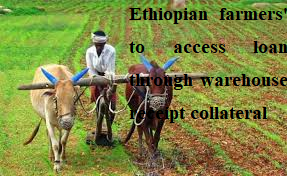
It is crystal clear that on the heels of the macroeconomic reform policy effectuation, a wide spectrum of effective undertakings has been underway in the length and breadth of Ethiopia in a triumphant and successful manner. On the basis thereof, the pursued objective has been moving forward in the right direction proving naysayers wrong and throwing cold water on their cock and bull stories at the earliest possible juncture.
It is a well-known fact that emerging from the initial stages of the effectuation of the macroeconomic reform policy, pessimists have left no stone unturned to drag through the mud the positive strides of the reform unfolding in every nook and cranny of the country with flying colors.
Notwithstanding the fact that they kept on giving the cold shoulder to the unvarnished truth surfacing in the left, right and center of the country, all their efforts over and over again kept on going for nothing and getting off the track.
As things stand at present, the whole thing with regard to the macroeconomic reform has continued moving in the right direction against all odds through the unwavering commitment of the government.
It is worth recalling that the government of Ethiopia in collaboration with the Development Partners Group (DPG) in the recent past held a high-level meeting at the Ministry of Finance to discuss the country’s ongoing macroeconomic reforms and their impact on fiscal and monetary policies. This meeting represents a pivotal moment in Ethiopia’s economic transformation, building on the progress of the Home-Grown Economic Reform Agenda (HGER), now entering its second phase (HGER 2.0), according to a source.
Launched in 2019, the Home-Grown Economic Reform Agenda (HGER) has been central to Ethiopia’s strategy for addressing macroeconomic imbalances, promoting sustainable growth, and establishing the private sector as the key driver of development. Notable progress has been made in reforming state-owned enterprises (SOEs), improving the investment climate, and enhancing domestic resource mobilization.
With the launch of HGERA 2.0, the government is intensifying its reform efforts to address deep-rooted challenges including foreign exchange shortages, low productivity, and limited global competitiveness. A central aspect of this reform is the shift toward a market-based foreign exchange system designed to revitalize the economy and stimulate growth.
The government has also introduced robust fiscal and monetary policies to complement these reforms with a focus on debt sustainability, pro-poor spending, and domestic revenue mobilization. The fiscal strategy includes a commitment to limiting deficit financing through stringent provisions, while transitioning to an interest rate-based monetary policy framework designed to curb inflation and stimulate investment.
In her opening remarks, Semereta Sewasew, State Minister of Finance, emphasized the government’s dedication to these reforms and highlighted the importance of Development Partners’ technical and financial support. “Our macroeconomic reforms are designed to address longstanding challenges, such as foreign exchange shortages and limited global competitiveness. We are committed to creating an inclusive, market-driven economy,” she stated.
The success of the macroeconomic reform being registered in a broad range of sectors is the outcome of the commitment and hard work of the federal government of Ethiopia. It is certain that the implementation of the macroeconomic reform policy has set in motion breathing new life into a wide variety of development undertakings of the country in the shortest possible time.
In actual fact, the successful move of the country has continued winning the hearts and minds of the wider international community. It is worth nothing that the macroeconomic reform policy has been oiling the wheels of competitiveness getting to the bottom of hindrances on various development activities.
The other good thing of the ongoing reform is, it has brought up the curtain on attracting investors from various parts of the world, addressing foreign currency shortage, stabilizing the national economy and other related aspects as fast as possible.
In an interview with the Ethiopian Press Agency (EPA), Mines State Minister Milion Mathewos stated that the government’s bold reform measures have led to notable improvements, including the narrowing gap between official and black-market foreign exchange rates. This development has positively impacted the gold and mining industries, he noted.
According to the State Minister, the government has introduced various incentives to support the mining industry, which have played a key role in reducing smuggling and illegal trading. As part of these measures, vendors supplying gold to the National Bank of Ethiopia now receive 95% of their payment upfront, with the remaining balance settled within 30 days. Additionally, those delivering more than 25 kilograms of gold are eligible for higher incentives from the national bank.
He emphasized that the ministry has prioritized the sector and is working closely with stakeholders to facilitate the legal production and sale of gold. The government is also providing support to small and medium-scale producers, yielding positive results. He underscored the importance of equipping producers with modern and advanced technologies to sustain the progress achieved so far.
The ministry is focused on increasing gold production and enhancing productivity to generate more foreign currency revenue. As part of these efforts, it has signed a service agreement with Wollo University, which is now being implemented to strengthen the capabilities of industry players.
It has commonly been assumed that the macroeconomic reform policy oils the wheels of the country’s economy and takes the whole thing to the next level of success in the shortest possible time. At this point in time, the reform has kicked off bolstering cooperation with banking institutions in the world.
At this moment in time, the positive strides of the macroeconomic reform are being witnessed in every part of the country has been taking the country’s economy to the next level of accomplishment at the earliest possible time.
Taking into consideration the fact that the macroeconomic reform has been taking the country’s economy to unprecedented height people from all walks of life should stand by the side of the government more than ever before.
As the macroeconomic reform policy bolster the country’s economy fashioning quite a lot of employment opportunities, attract investors from various parts of the world, and other related aspects, accomplishing the intended target will be a walk in park. For the sake of truth, following the macroeconomic reform policy, Ethiopia has commenced attaining the desired goal.
Ethiopia’s comprehensive macroeconomic reform has provided a swift relief to the economy by increasing foreign exchange reserves and exports, senior economists told ENA.
The country has been implementing a comprehensive macroeconomic reform since July 2024, with the objectives of achieving high and stable economic growth, maintaining single-digit inflation, and building a globally competitive economic system, among others.
Senior researcher at Ethiopian Economics Association (EEA), Abule Mehari said the macroeconomic reform improves the nation’s foreign exchange reserves and exports.
According to him, the ongoing macroeconomic reform measures have been stimulating the country’s import situation by promoting import substitution despite some challenges.
To this effect, the National Bank of Ethiopia has recently disclosed that it has enhanced its foreign exchange reserves.
“After the reform, we found a little bit of relief in the economy in terms of improving our foreign reserve, our export, and in supporting imports specifically like fuel, fertilizer and others,” he disclosed.
Following the introduction of the macroeconomic reform policy at the end of July 2024, the Ethiopian government is working towards currency unification between the official and parallel markets.
The reform also aims to alleviate foreign exchange shortages, boost FDI inflow, enhance investors’ confidence as well as Ethiopia’s export competitiveness, boost domestic productivity and address trade imbalances.
There is no denying the fact that the comprehensive macroeconomic reform has jumpstarted making Ethiopia’s banking sector to turn out to be competitive and market-oriented.
As a matter of fact, Ethiopia has been effectuating the macroeconomic reform via enhancing the financial sector to become inclusive and competitive.
The macroeconomic reform designed to tackle foreign exchange distortions, address enduring foreign payment imbalances, combat inflation through modern monetary policy frameworks, alleviate debt vulnerabilities, enhance gross domestic income, fast-track sustainable economic progress of the country and more of the same through the passage of time.
As long as the ongoing macroeconomic reform has continued moving in the right direction and accomplishing the sought after target, people from all backgrounds and all segments of society should keep on joining hands to take the reform to new frontiers and new heights in the shortest possible time.
BY ADDISALEM MULAT
THE ETHIOPIAN HERALD TUESDAY 4 MARCH





